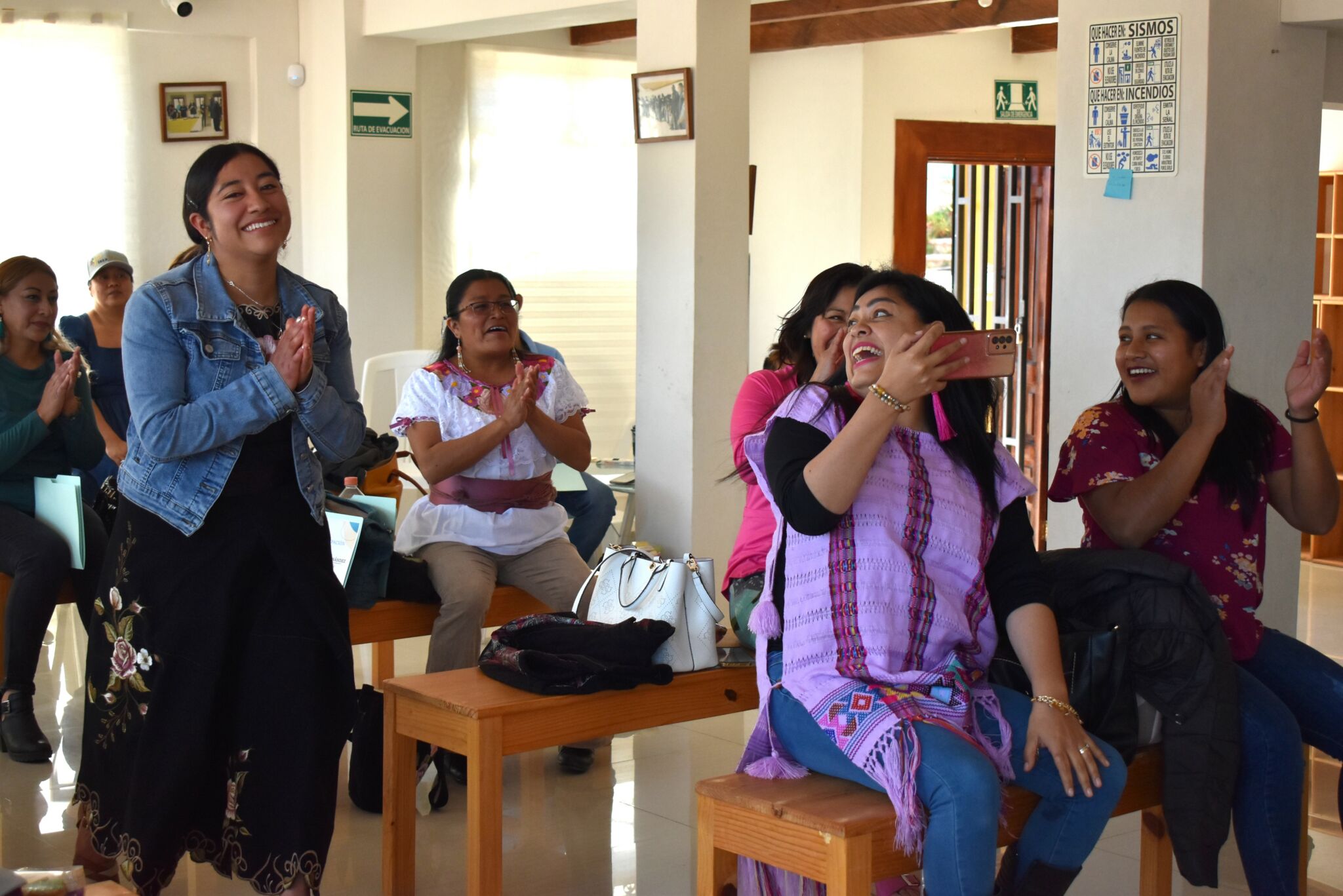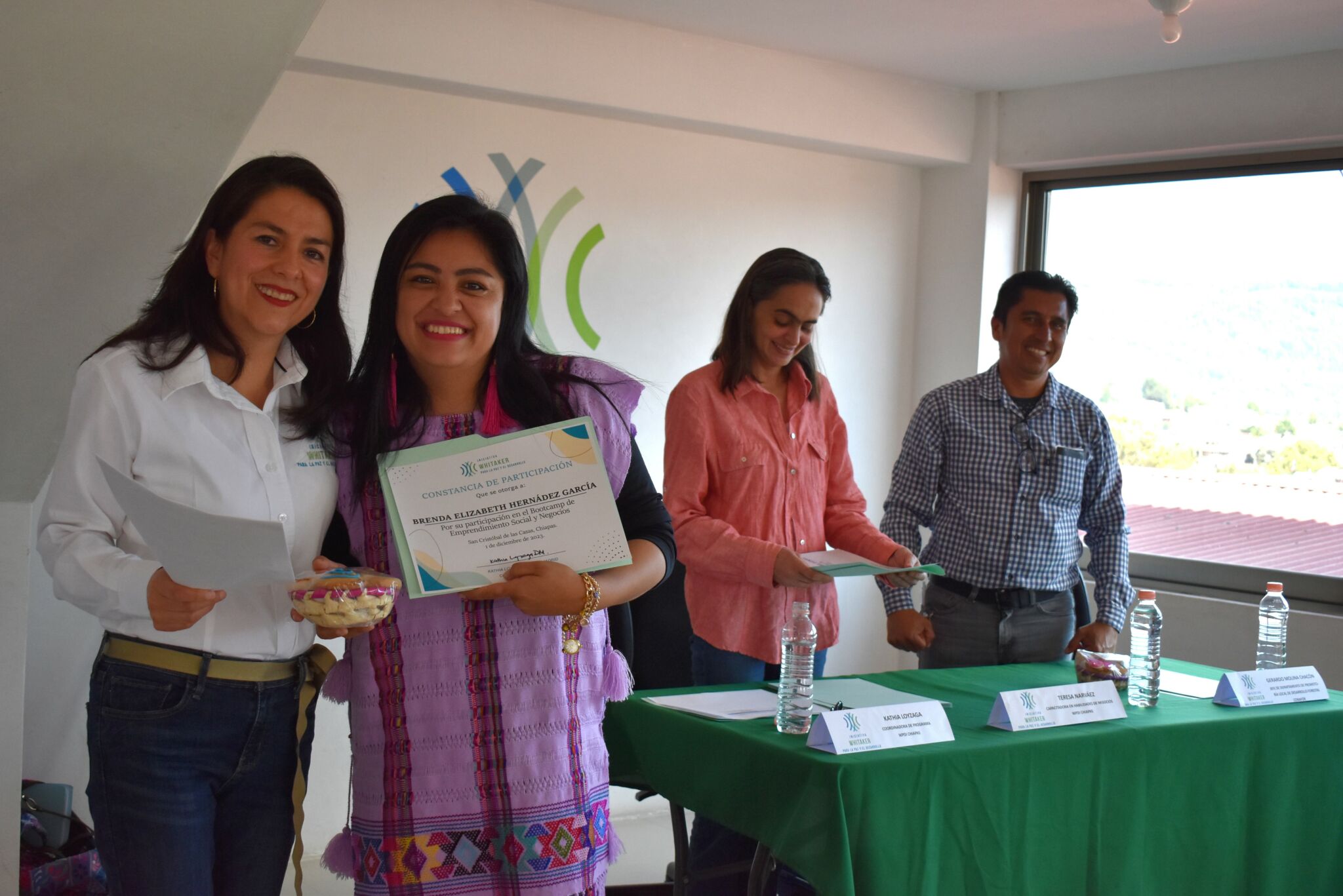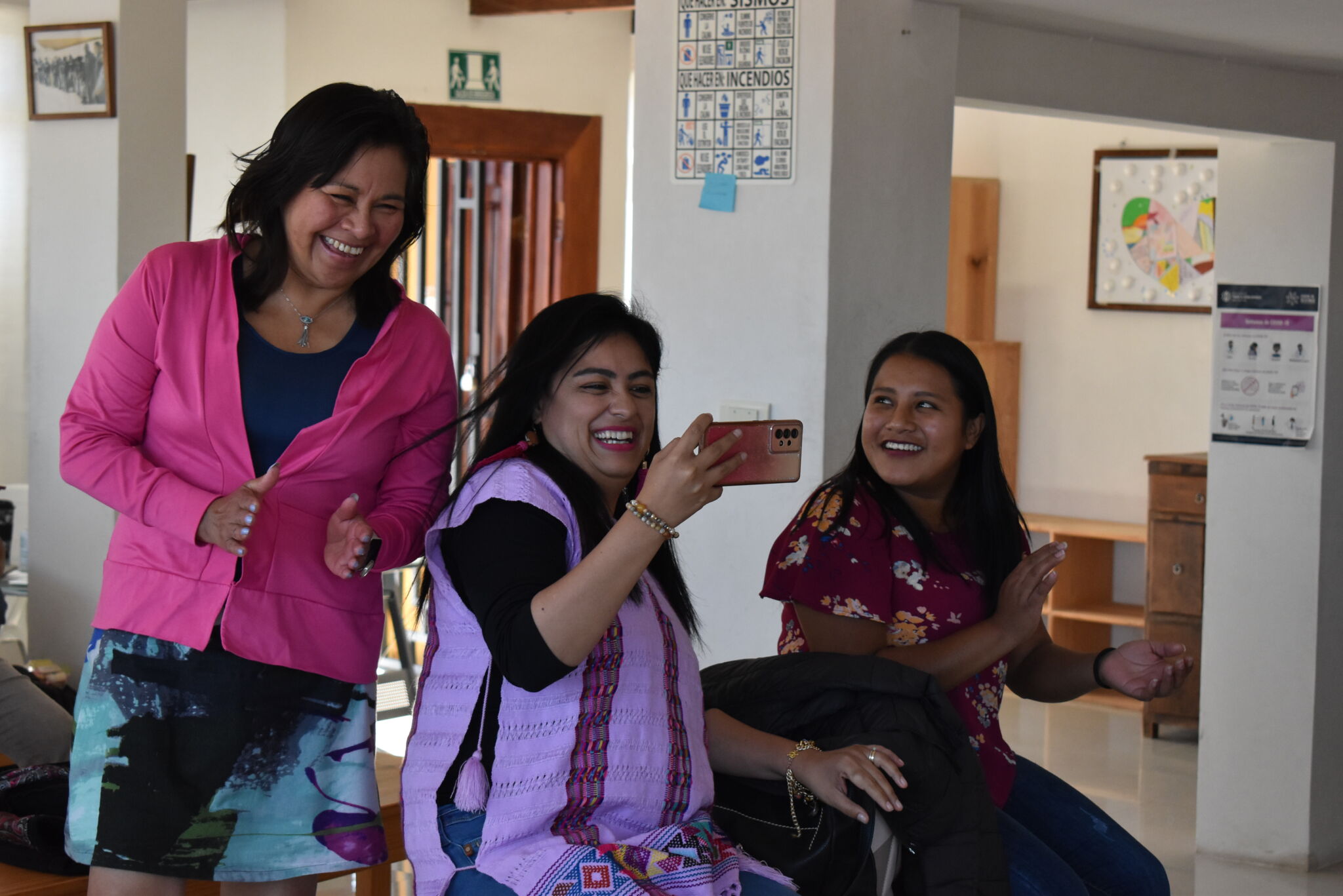January 22, 2024 – Years of experience working in underprivileged communities around the world has shown us how our Business Bootcamp program can really act as a transformative pillar for local development. By providing comprehensive entrepreneurial training and opportunities for business development, this program is designed to empower individuals, particularly women, fostering economic autonomy.
In Chiapas, Mexico, a region marked by persisting gender disparities, we have developed, in partnership with the Western Union Foundation, a program that offers a crucial avenue for the emancipation of women, unlocking their potential as business leaders.

The idea is to help participants develop their small business projects through business training, seed funding and mentoring, allowing them to gradually become autonomous and help drive the growth of local economies. As businesses flourish, employment opportunities are created, driving sustainable development. WPDI’s approach not only catalyzes economic development but also catalyzes societal change, breaking gender barriers and paving the way for a more inclusive and empowered community in Chiapas.
At the beginning of December 2023, our team in Chiapas ran the last round of our Business Plan Competition sessions of the year. A total of 16 business projects participated, covering a range of different sectors from recycling to beauty products and alimentation. 8 of the 16 projects were female-focused, as part of the Women Livelihood Program, and 8 of them were part of our Business Bootcamp program, supported by the Western Union Foundation.
Among the Women Livelihood Program, the 4 winning projects were Herbolarian Women “El Shauc” created by Florinda Evarista Hernández Pérez for the production and transformation of natural remedies developed by a collective of indigenous women from Teopisca municipality. Jolob by Marcela López Pérez specializes in handcrafted textile garments for local women everyday wear. Azucena Sjalel Nichim by Claudia Azucena Vázquez Hernández produces handcrafted garments. Finally, Back to Life by Imelda Trujillo Feliciano focuses the production of women’s clothing using recycled fast-fashion discarded garments.

Florinda Evarista Hernández Pérez (42), one of the successful candidates, described how this experience will change her life: “I feel very happy because we learned many things, including how to get ahead as a group. I strengthened myself as a woman and now I know that not having much education and being a housewife is not a limitation to move forward and even more when we have a goal and we focus on achieving it. Having achieved economic support for my chicken business and sharing this goal with more friends gives me more enthusiasm to move forward. My knowledge strengthens me to continue accompanying other groups so that they are also motivated in this initiative.”
As for the 8 projects participating in the Business Bootcamp initiative, we also selected 4 promising candidates: Plaza Maria by María Esperanza Moguel Santiago, Papelería Jchavun by Reyna Gómez Ruíz, Novedades Anita by Anita Arcos Álvaro, and Syuel by Abril Mercedes Rodríguez Guillén.
Participants were keen to share their acquired knowledge with others and help develop their communities in a positive way: “I am a woman who likes to help others. I work on environmental and agroecology issues in the communities, I feel very happy, I learned a lot about microenterprises and business. Meeting and sharing with my classmates was a great pleasure. Winning second place in the business contest gives me the opportunity to start a business in the community, to share this knowledge with other women who do not have the opportunity to travel for training, and the course strengthened my knowledge to continue sharing and accompanying other groups so that they can also be motivated with other initiatives,” said 2nd place winner, Reyna Gómez Ruíz (38).

The 8 winning projects will be empowered with the support of WPDI over the coming months thanks to seed funding and backstop mentoring. We are very excited to see the growth of initiatives that will directly benefit 39 people as social business partners.
In partnership with
![]()